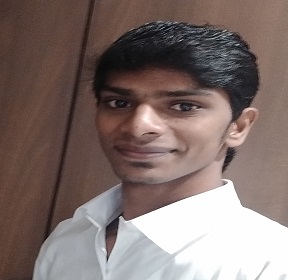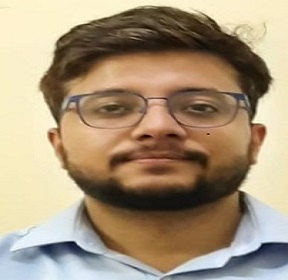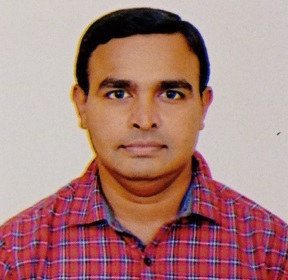Speakers
Kishore Kumar
Symbiosis International University, India IndiaTitle: Pulmonary Rehabilitation – The art of medical practice
Abstract:
Pulmonary rehabilitation (PR) is the “art of medical practice wherein an individually tailored, multidisciplinary program is formulated, which through accurate diagnosis, therapy, emotional support, and education stabilizes or reverses both the physio- and psychopathology of pulmonary diseases and attempts to return the patient to the highest possible functional capacity allowed by his or her pulmonary handicap and overall life situation.” The general goals of pulmonary rehabilitation are to control and alleviate symptoms, restore functional capabilities as much as possible, and improve quality of life. Pulmonary rehabilitation does not reverse or stop the progression of the disease, but it can improve a patient’s overall quality of life. Health care providers from various disciplines are needed to reach these goals. The success of PR will be judged by patient outcomes, including improved health related quality of life, reduced breathlessness, increased daily life activities.
Biography:
Mr. Kishore Kumar has completed his Bachelors in Respiratory Therapy from Chettinad Academy and Masters from Symbiosis International University, India. Currently, he is a full-time Ph.D. researcher in Chettinad Academy of Research and Education and he is the board member of the Indian Academy of Respiratory Care, an academic wing of the Indian Assoication of Respiratory Care. He is a fellow of the International non-invasive ventilation academy. He is also working as a Respiratory therapist in CMR homecare and rehabilitation center.
Ayush Pandey
Shree Guru Gobind Singh Tricentenary University IndiaTitle: Omicron SARS-CoV-2 variant: a new chapter in the COVID-19 pandemic
Abstract:
On Nov 25, 2021, about 23 months since the first reported case of COVID-19 and after a global estimated 260 million cases and 5·2 million deaths, a new SARS-CoV-2 variant of concern (VoC), omicron, was reported. Although previous VoCs emerged in a world in which natural immunity from COVID-19 infections was common, this fifth VoC has emerged at a time when vaccine immunity is increasing in the world. The emergence of the alpha, beta, and delta SARS-CoV-2 VoCs were associated with new waves of infections, sometimes across the entire world. For example, the increased transmissibility of the delta VoC was associated with, among others, a higher viral load, longer duration of infectiousness, and high rates of reinfection, because of its ability to escape from natural immunity, which resulted in the delta VoC rapidly becoming the globally dominant variant. The delta VoC continues to drive new waves of infection and remains the dominant VoC during the fourth wave in many countries. Concerns about lower vaccine efficacy because of new variants have changed our understanding of the COVID-19 endgame, disabusing the world of the notion that global vaccination is by itself adequate for controlling SARS-CoV-2 infection. Indeed, VoCs have highlighted the importance of vaccination in combination with existing public health prevention measures, such as masks, as a pathway to viral endemicity.
Biography:
Ayush Pandey is currently a post-graduate resident in the Department of Pulmonary Medicine at SGT University, Gurugram, Haryana, India. He obtained a Bachelor of Medicine and Bachelor of Surgery (MBBS) at KIMSDU, Karad, Maharashtra, India. He obtained a Diploma in Clinical Counselling (DCC) from Apollo Hospitals, India. He did Post Graduate Diploma in Clinical Cosmetology (PGDCC) from the University of Greifswald, (ILAMED), Germany. He also did Post Graduate Diploma in Sexology and Psychosexual Counselling (PGDS) from WNHO Institute of Sexology (Affiliated to American College of Sexology, ACS), India
Anil Kumar Kodavala
IndiaTitle: Attitudes and beliefs of respiratory patients for avoiding Covid 19 vaccination: Experience at a tertiary care center in India
Abstract:
Vaccination against Covid 19 pandemic started in February 2021 in India. On a priority basis healthcare workers, elderly people and other adult age groups were allowed to take vaccine in a phased manner. Even 11 months after initiating the programme, still there are some people who have not received vaccine. To understand issues preventing people from receiving covid 19 vaccine, a cross sectional study was done at a tertiary care center using a questionnaire and individual interview. The study was approved by institutional ethics committee. All respiratory patients above 18 years of age who attended OPD from September 2021 to November 2021 were included. Patients were asked to either fill questionnaire on self or with help of a post graduate as per patient’s responses. Data was analyzed using MS Excel 2013. 597 subjects were enrolled in the study. 307 were males and 290 were females. Mean age of men 46.92±13.90 years and mean age of women 45.03±11.07years. 73% took a native medicine (229 males and 209 females).7% were afraid of side effects (24 males and 20 females), 6% were taking long term medication for other diseases, 5% heard news of deaths following covid 19 vaccination, 3% were afraid of injection,3% were thinking vaccine of no use and 3% were having drug allergies. Taking a native medicine, particularly in Nellore district, was the most common cause for avoiding Covid 19 vaccination. Unless these issues are addressed, the ultimate goal of this vaccination programme may not be met.
Biography:
Anil Kumar Kodavala has completed his MBBS at the age of 23 years from NTR University of Health Sciences and specialty training in Respiratory medicine from Amrita School of Medicine. He is working as an associate professor at Narayana Medical College Hospital, Nellore. He has published 6 papers in reputed journals.



